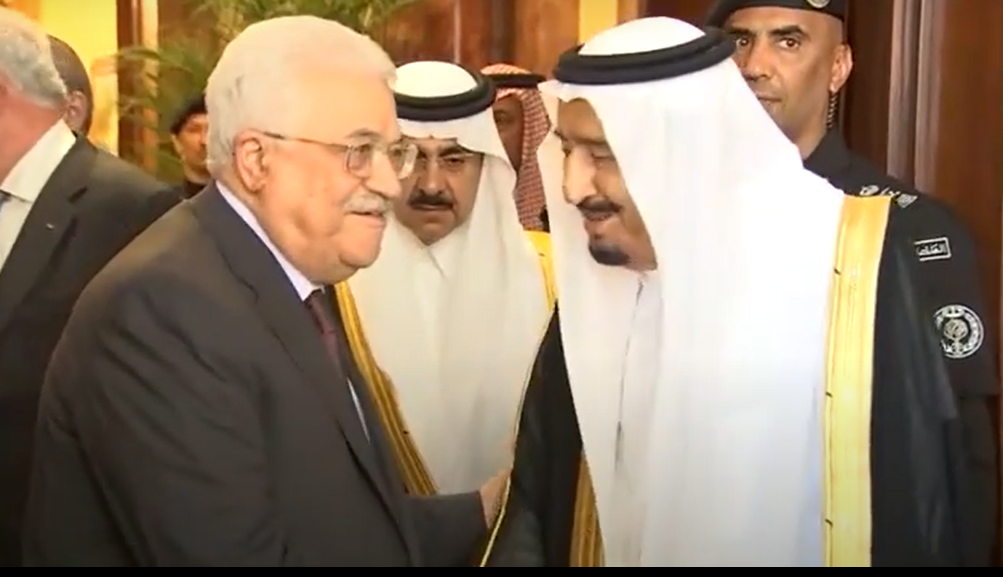According to American sources, an agreement was reached between President Biden and Prime Minister Netanyahu during their recent meeting in New York.
This agreement ensures that the expected normalization agreement between Saudi Arabia and Israel will not undermine the possibility of realizing the two-state solution—a sovereign, independent Palestinian state.
However, despite these assurances, a comprehensive assessment of factors related to the Israeli-Palestinian conflict suggests that the establishment of an independent Palestinian state is not imminent.
The current Palestinian leadership will likely continue to govern until PA Chairman Mahmoud Abbas, who is 88 years old, steps down from the political stage.
The Saudi-Israel agreement is also unlikely to result in the emergence of a new and moderate Palestinian leadership capable of leading the Palestinians to an inclusive settlement with Israel in Judea and Samaria and the Gaza Strip.
Hamas, a terrorist organization, will continue to rule the Gaza Strip, while Judea and Samaria will remain under the governance of a corrupt Palestinian leadership associated with Mahmoud Abbas.
Although general elections in Judea, Samaria, and the Gaza Strip could potentially alter the political landscape, doubts persist whether these elections will indeed occur due to concerns that they could lead to the rise of the terrorist Hamas movement in Judea and Samaria as well.
The Biden administration remains committed to pursuing the establishment of an independent Palestinian state as the primary means to resolve the Israeli-Palestinian conflict, despite other available options.
However, it is evident that even the Saudis understand that the establishment of an independent Palestinian state is currently unattainable.
Saudi commentator Abd al-Rahman al-Rashed, who maintains close ties to the Saudi royal house, expressed this sentiment in a two-part article published on October 1 and 2 in the “A-Sharq Al-Awsat” newspaper.
Al-Rashed stated, “The normalization agreement will not lead to the establishment of a Palestinian state but will create the political climate that supports it.”
He further noted, “Finding a comprehensive solution to the Israeli-Palestinian conflict through a single plan is a difficult and impossible task under the current regional conditions.”
Reports suggest that Saudi Arabia is discussing the conditions it intends to present to Israel as prerequisites for the normalization agreement.
Senior PA officials claim that Saudi Arabia will demand the freezing of settlements and the transfer of significant areas in Judea and Samaria to full Palestinian sovereignty to ensure the potential establishment of a Palestinian state, alongside substantial economic and humanitarian aid.
The Saudis appear to recognize that the current Israeli government may not be politically amenable to territorial concessions, so they plan to set realistic conditions for Israel.
The Biden administration has also conveyed to the PA that some of the conditions it seeks from Saudi Arabia and Israel may not be achievable.
They have urged the PA to make reasonable demands from the Israeli government that can be met without risking its collapse.
In his article, Abdelrahim al-Rashed discussed several ideas currently under consideration within the Saudi royal house:
- Building trust between the two sides by freezing settlements and restricting extremist Israelis from entering Islamic holy places.
- Addressing the humanitarian situation in Judea, Samaria, and the Gaza Strip.
- Facilitating land and air traffic for Palestinians.
- Boosting the Palestinian economy, expanding trade opportunities, and opening foreign markets for Palestinian goods.
Senior political figures in Jerusalem believe that Saudi Arabia prioritizes its own interests, with the Palestinians as a secondary concern.
They assert that normalization between Israel and Saudi Arabia has already begun and will continue even if the Palestinians oppose the agreement.
Officials in the PA claim that Hussein al-Sheikh, Secretary General of the PLO Executive Committee, convinced PA Chairman Mahmoud Abbas that opposing the agreement may not be feasible, and instead, they should seek maximum benefits from it.
Their primary aim is securing substantial financial aid from Saudi Arabia and the US to prevent the collapse of the PA.
While the Palestinian street strongly opposes the normalization agreement between Saudi Arabia and Israel, accusing Saudi Arabia of prioritizing its interests over Palestinian concerns, similar agreements have already been signed with the United Arab Emirates, Bahrain, and Morocco.




